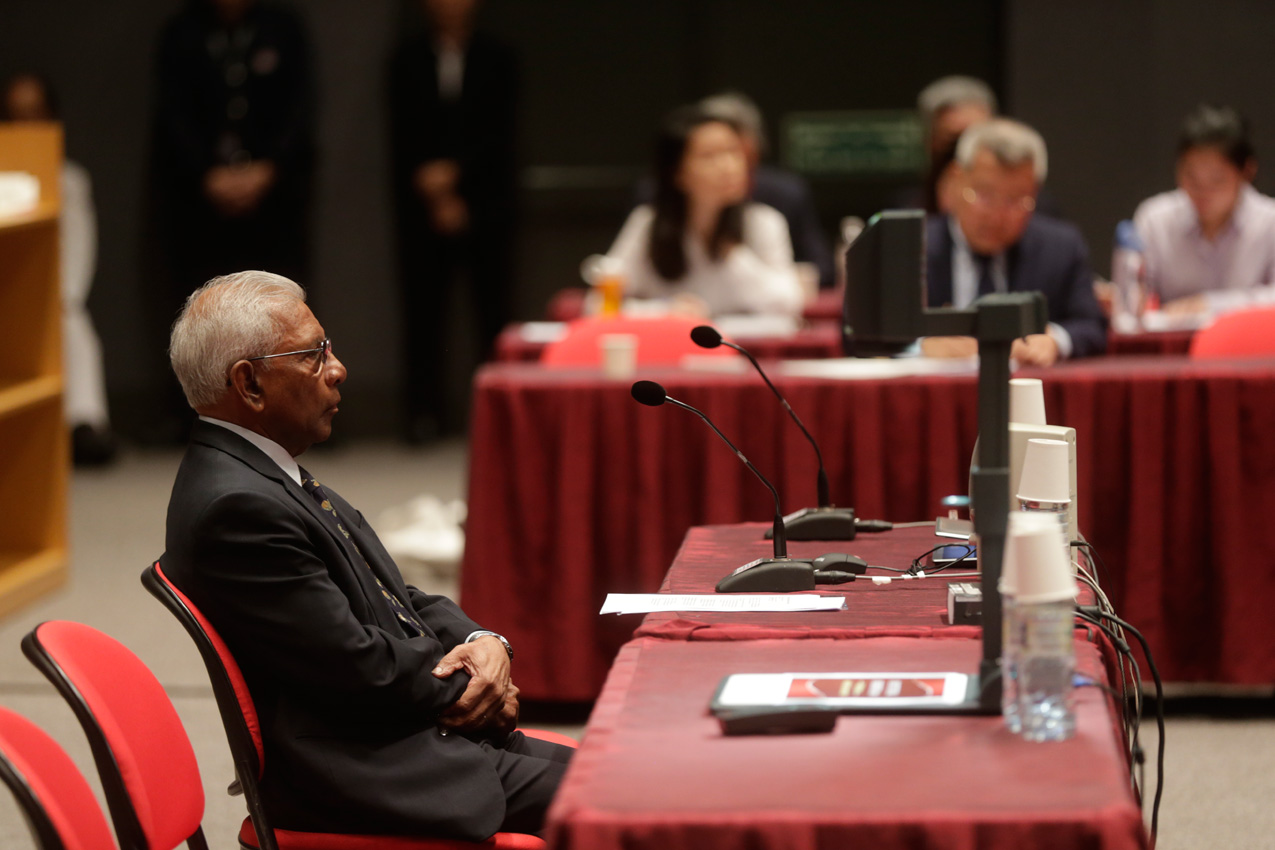Any change to the elected presidency to ensure minority representation necessarily involves affirmative action of some sort, said former Cabinet minister S. Dhanabalan.
His frank assessment set the tone for the fourth and final public hearing on changes to the elected presidency, held at the Supreme Court auditorium yesterday.
The hearing is before a Constitutional Commission Prime Minister Lee Hsien Loong appointed in February to review three aspects of the elected presidency: candidates’ eligibility criteria, the Council of Presidential Advisers and minority representation.
Minority representation had been the issue most hotly debated at the hearings, of which the first three were held last month.
While broadly agreeing on the need for a minority president from time to time, speakers were split on how to achieve it.
Some worried that lowering the bar for presidential candidates on the basis of race would undermine meritocracy, while others argued that minority communities themselves reject affirmative action.
Yesterday, Mr Dhanabalan, 78, acknowledged trade-offs that had to be made and the tension between ideals and reality, saying of his own suggestion: “It’s not an ideal solution but we’re looking for practical solutions here.”
Mr Dhanabalan had suggested that every third election be tweaked to ensure a minority president is elected from time to time.
Under this system, there would be two consecutive elections for a president who would serve a six-year term, followed by an election for a presidency with an eight-year term.
For the eight-year term, two candidates would run on the same ticket, with at least one of them coming from a minority group.
Each would be president for four years at a time, during which the other person would be vice-president.
This slate of minority candidates should be nominated by Parliament, said Mr Dhanabalan.
Chief Justice Sundaresh Menon, who chairs the commission, asked if this could lead to criticisms of affirmative action.
Mr Dhanabalan replied: “There is an element of affirmative action in the approach here.
“And I think the very fact that we’re looking for some special way in which minorities can be represented or can become president already is an admission that we need to have something special.”
He also pointed out that the criteria would be lowered only “as a last resort” in special situations, like when people who meet the formal eligibility criteria cannot be encouraged to contest.
Professor Chan Heng Chee, a commission member, asked if under that system, a minority candidate would be left open to criticism that he was riding on the coat-tails of his teammate.
Mr Dhanabalan replied that any kind of group representation constituency (GRC) arrangement – where candidates run in teams – cannot escape that, as “that is required for the very nature of electorate”.
He said that while he was never in favour of the GRC as he is an idealist, he also has to be a realist and consider “what can actually happen”.
“The very fact that we’re talking about making such special provisions for minorities to be elected means that we have deviated a little bit from the ideal situation,” he said.
“The question is how far do we deviate.”
But another group of speakers – National University of Singapore law undergraduates Grace Teo, 20, Carina Kam, 21, and Amelia Chew, 21 – were uncomfortable with affirmative action.
They argued the law should be amended to ensure a candidate is able to unify Singapore’s different races and represent multiracialism, instead of needing the person to come from a minority community.
They were the last of 19 individuals and groups invited to give their views at the hearings, along with constitutional law expert Kevin Tan, former Nominated MP Loo Choon Yong, and lawyer Loo Choon Hiaw yesterday.
The commission’s report is expected to be submitted by the third quarter of this year.

This article was first published on May 7, 2016.
Get a copy of The Straits Times or go to straitstimes.com for more stories.






